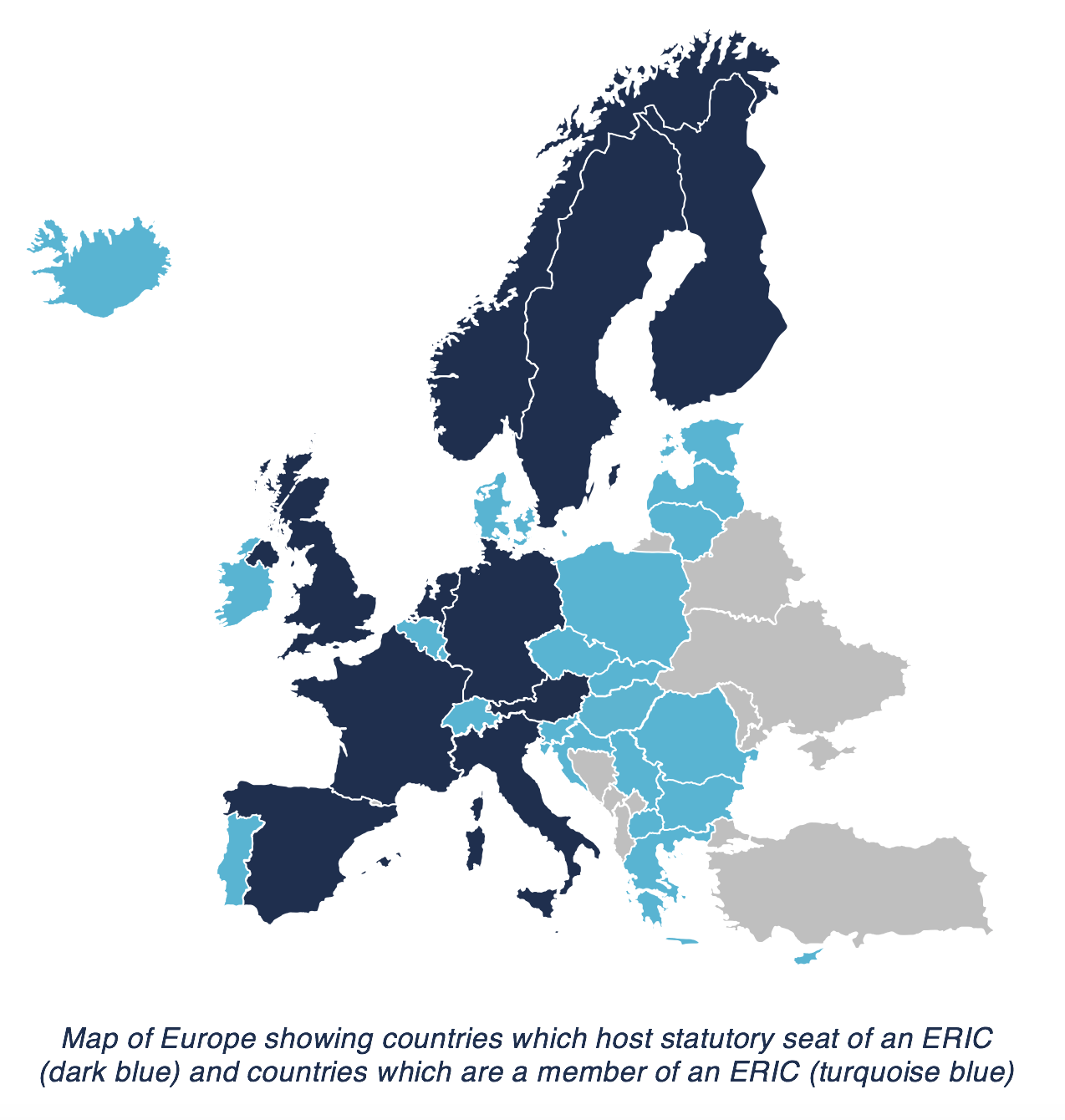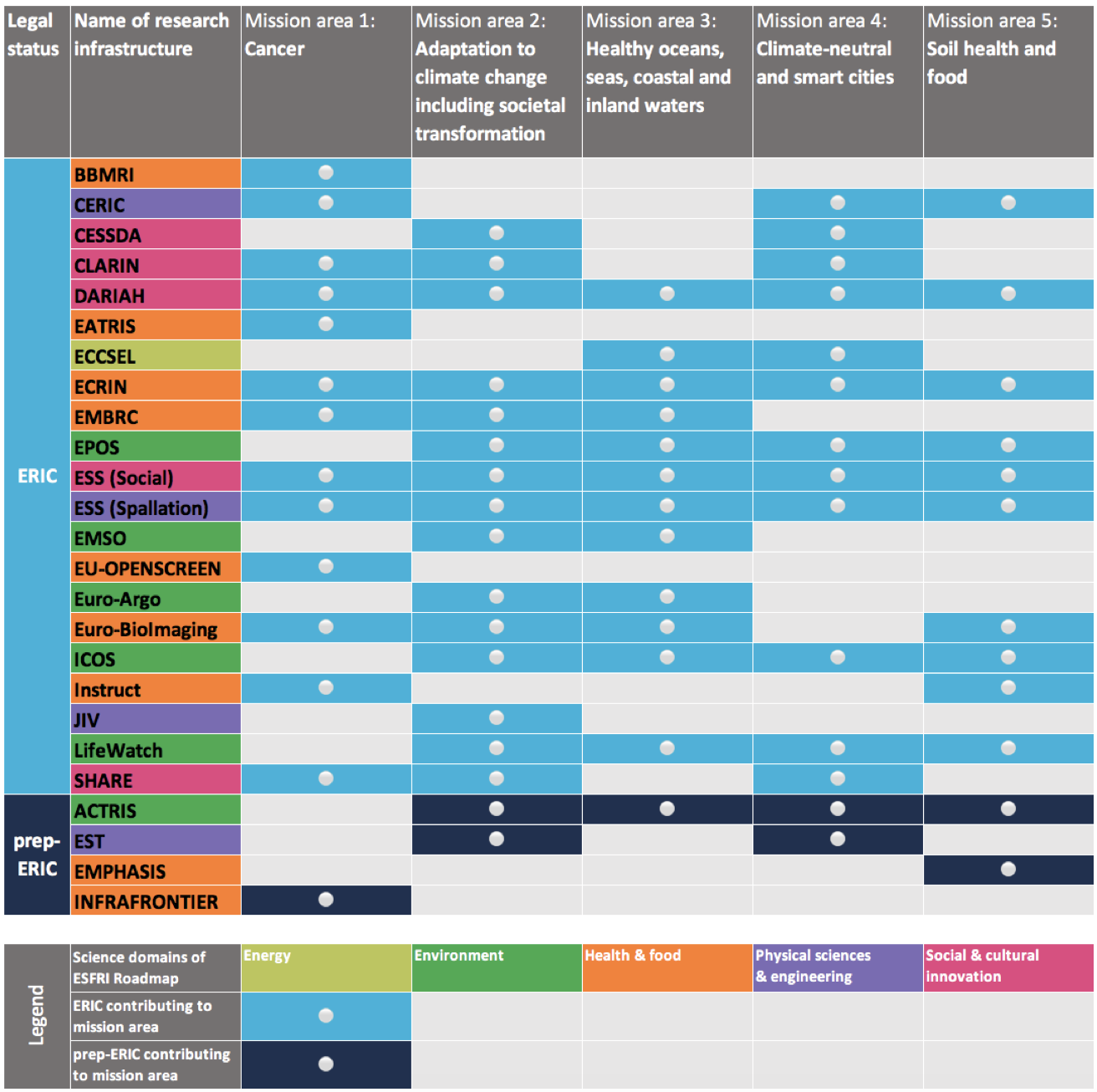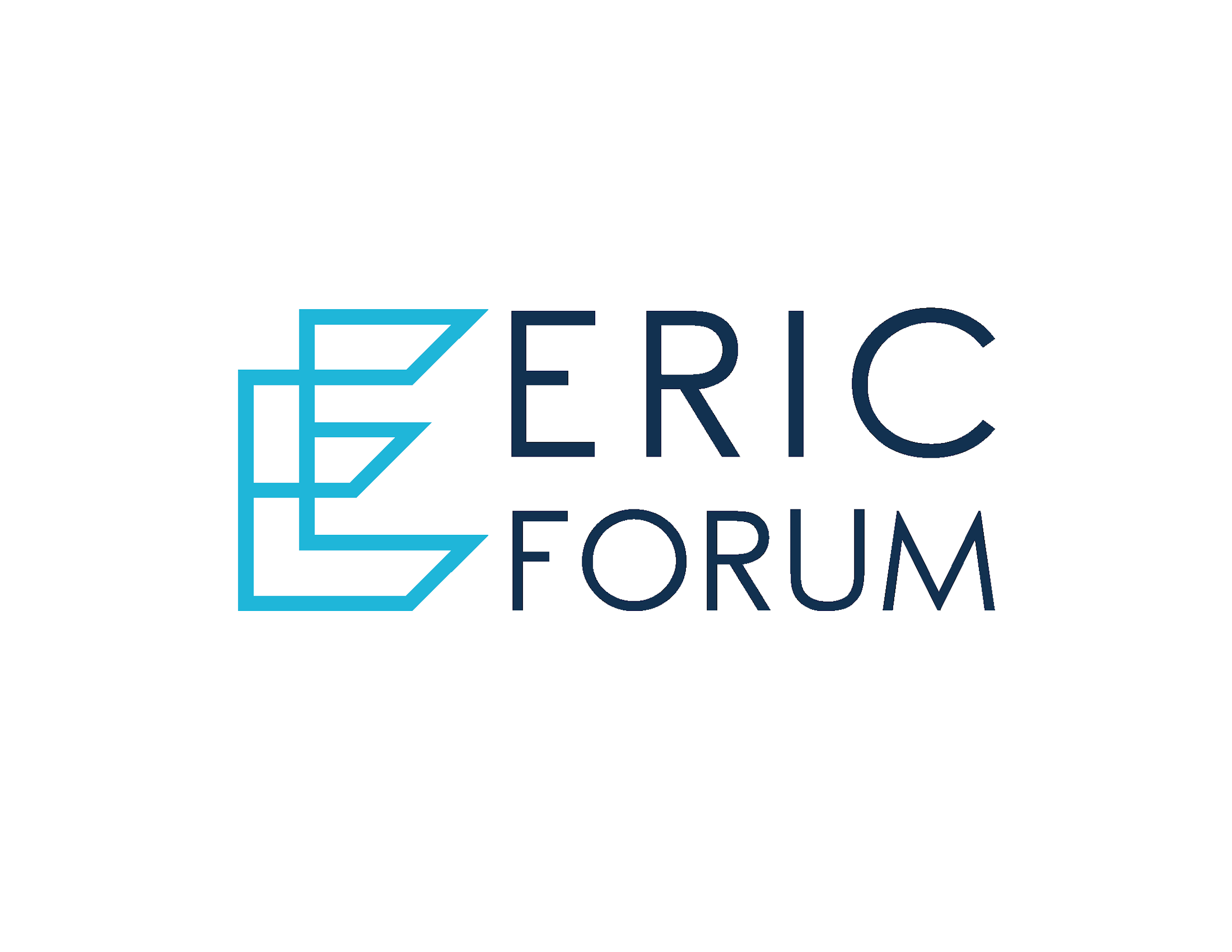The ERIC community and Horizon Europe Mission Areas
ERICs as facilitators of excellent science benefiting society
The legal framework for a European Research Infrastructure Consortium (ERIC) was introduced in 2009 to facilitate the establishment and operation of large-scale research infrastructures of European interest. The first ERIC was subsequently founded in 2011, in the Netherlands. The ERIC community has been expanding ever since. Until now, 21 ERICs have been established with their respective host seats in 10 different European states. Having around 12 member countries on average, each ERIC is a truly international endeavour.
 The fast growth of the ERIC community in the last nine years bears testimony to the importance of the ERIC legal framework for European science and innovation. Research infrastructures aspiring to become an ERIC (currently 11 of them) must demonstrate their added value for the European Research Area (ERA) in a complex application process that – once successfully completed – leaves no doubt as to the scientific excellence of the ERIC. Each ERIC represents a leading international research organisation in their respective domain, and facilitates excellent scientific research by providing access to high-quality data and cutting-edge instrumentation. ERICs are critical elements of the ERA.
The fast growth of the ERIC community in the last nine years bears testimony to the importance of the ERIC legal framework for European science and innovation. Research infrastructures aspiring to become an ERIC (currently 11 of them) must demonstrate their added value for the European Research Area (ERA) in a complex application process that – once successfully completed – leaves no doubt as to the scientific excellence of the ERIC. Each ERIC represents a leading international research organisation in their respective domain, and facilitates excellent scientific research by providing access to high-quality data and cutting-edge instrumentation. ERICs are critical elements of the ERA.
The ERIC community is diverse and covers five different research domains of the European Strategy Forum on Research Infrastructures (ESFRI) Roadmap – namely energy, environment, health and food, physical sciences and engineering, and social and cultural innovation. While being diverse, ERICs are united in their vision to carry out research programmes that contribute to the development of a variety of scientific and technological fields, strengthening Europe’s global position in research and innovation, and improving the life of European citizens. The ERICs also work together within the framework of the ERIC Forum – a platform established to intensify collaboration and collectively develop responses to common challenges. Much of the science enabled by ERICs addresses the United Nations (UN) Sustainable Development Goals (SDG), tackles grand societal challenges, and contributes to research aimed at combating global threats such as the COVID‑19 pandemic. This paper further describes how the ERIC Forum together with four preparatory ERICs contribute to the mission areas currently being developed in preparation for the next European Union’s Research and Innovation Framework Programme, Horizon Europe.
Table showing which ERIC/prep-ERIC contributes to which Horizon Europe Mission Area

–
► Download the position paper here.





